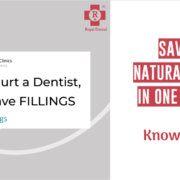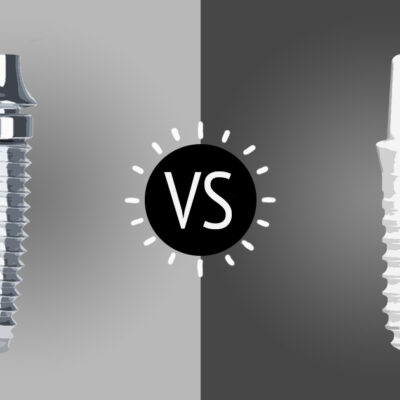When your natural teeth are missing or have been damaged by decay, gum disease, or an accident, you might wonder if you can regain a healthy and confident smile. You might feel that it’s impossible to have a great smile again because of the visible gap in your teeth. But luckily for you, there’s dental implant surgery! Dental implants are surgically-placed titanium screws that can help you get back your confidence! These artificial roots are placed directly into the jawbone to help support replacement teeth such as crowns, bridges, or dentures. They’re also the optimum solution for people who no longer have any natural teeth.
What are dental implants?
Dental implants are artificial roots that can be placed in the jawbone to help support replacement teeth such as crowns, bridges, or dentures. They’re also the optimum solution for people who no longer have any natural teeth. Implants are also called endosseous implants, which means they are placed inside the bone. This is in contrast to exosseous implants, which are placed outside the bone.

Types of dental implants
More than 60 companies manufacture dental implants and/or the materials used to create the restorations placed on top of them. As a result, dentists have many options for identifying the right treatment for specific patient needs. However, be aware that if you undergo an implant procedure by one dentist.
Then see a different dentist for a repair, your new dentist may have limited experience with, or may not have access to, the material components used by the previous dentist.

Two-Stage Implants: A two-stage procedure involves surgery to place the implant into the jaw bone and close (stitch) the gum tissue.
Endosteal (Endosseous) Implants: Placed in the jaw bone, endosteal is the most commonly used type for two-stage implant procedures. Placed primarily as an alternative to a bridge or removable denture, endosteal implants include screw types (threaded), cylinder types (smooth), or bladed types.
Single-Stage Dental Implants: A single-stage procedure involves surgically placing a longer implant into the jaw so it is on the jaw bone, with the top level with the gum tissue, after which the gum tissue is closed (stitched), leaving the implant healing cap visible. As a result, after several months of healing, the abutment and temporary restoration can be attached without the need for minor surgery to expose the head.
Subperiosteal Implants: Placed on the jaw bone within the gum tissue, with the metal implant post exposed to hold the restoration, subperiosteal are rarely if ever used today.
Benefits of dental implants
Strong support: Compared to other tooth replacement options, dental implants have the highest success rate.
Natural look: Unlike dentures or bridges that can easily slip or be seen in your smile, dental implants are placed inside your mouth. This means you won’t have to worry about your replacement teeth looking unnatural.
Long-lasting results Compared to other tooth replacement options, dental implants last longer. They can last 10 years or longer, compared to the average 5-year lifespan of fixed bridges, and the 4-year lifespan of dentures.
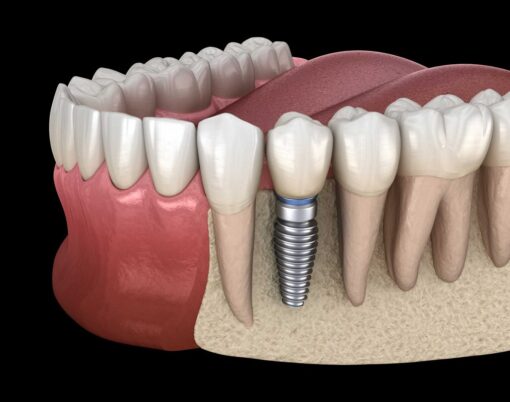
Improved oral hygiene: Dental implants are permanently placed in your mouth. This means you don’t have to replace them often. This also means you can brush and floss your replacement teeth just like your natural teeth. This significantly improves your oral hygiene, making you less vulnerable to gum diseases and other dental issues.
Things to consider before implants for missing teeth
Age – You may think that you can get dental implants at any age, but the truth is different. Generally, the best age to get dental implants is between the ages of 35 to 65. This is because the jawbone naturally weakens and shrinks as we age, which makes it harder for the implants to stay in place.
Bone health – The jawbone is where dental implants are placed. This is why it’s essential to make sure your jawbone is healthy. If your jawbone is weak, you’re at a higher risk of getting a condition called osteomyelitis. This is when the jawbone gets infected by bacteria.

Gum health – Your oral health can affect whether you can get dental implants or not. If you have gum disease or are prone to having gingivitis, you may not be a good candidate for implants. This is because poor gum health can negatively affect your jawbone.
Medical history – If you have certain medical conditions, you may not be a good candidate for dental implants. This is because your dentist may recommend a different treatment option that is better suited for your condition.
Dental implant surgery: What to expect
Pre-operation appointment – Before you go under the knife, your dentist will make sure that you are a good candidate for dental implants. He or she may also perform a clinical oral evaluation to make sure your oral health is good enough for implants.
Surgical procedure – During the procedure, your dentist will make a small incision in your gums. This is where they will place the dental implants. They will then attach a small metal post to each implant and let the incisions heal for a couple of months.
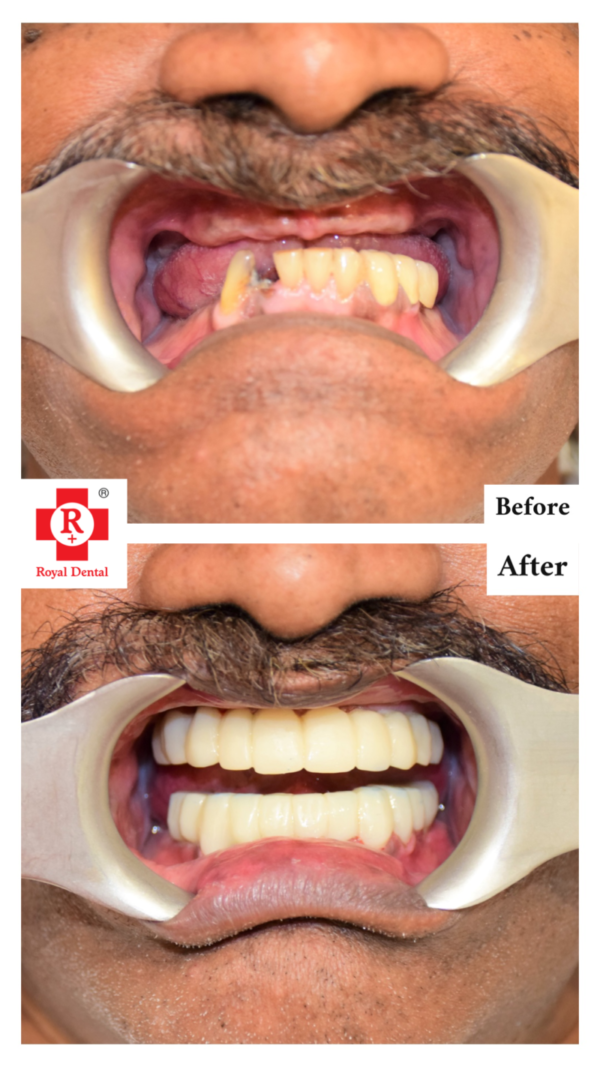
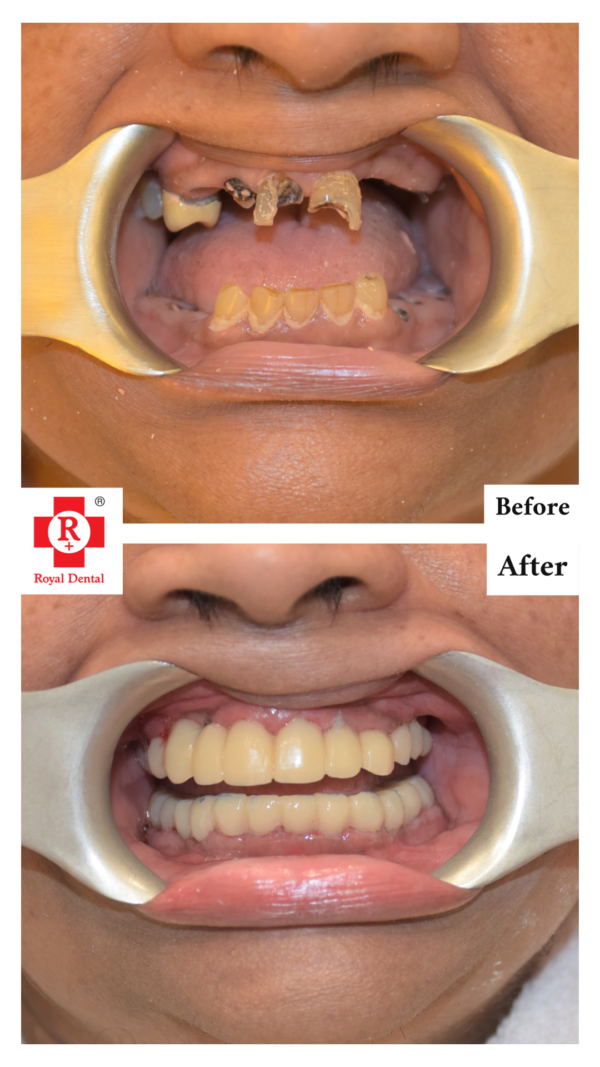
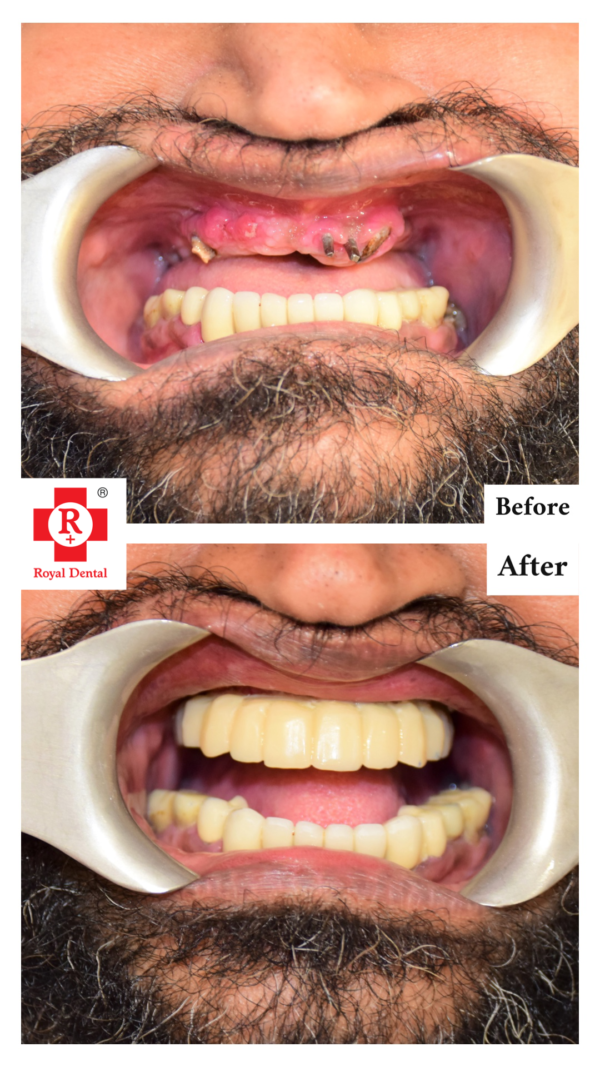
Post-operation recovery – After a couple of months, the metal posts are replaced with dental crowns. These are attached to the metal posts in your mouth. Once the incisions have healed completely, you can start brushing your teeth like you normally would.
Post-implant maintenance – Once you get implants, you have to keep them clean and healthy. This means brushing your teeth and flossing regularly, visiting your dentist regularly, and avoiding certain foods that can cause infections and damage your implants.
How can you keep smile beautiful after dental implants?
Healthy lifestyle – You can’t just get dental implants and expect your teeth to stay healthy and beautiful. You have to maintain a healthy lifestyle that promotes oral health. This means practicing good oral hygiene habits such as regular brushing, flossing, and visiting your dentist regularly.
Good diet – What you eat also affects your oral health. You should try to avoid eating foods that can damage your teeth such as sugar and processed foods. Instead, eat more fresh fruits and vegetables that are rich in vitamins and minerals that promote oral health.
Taking care of your implants – Like any other part of your body, dental implants need maintenance to stay healthy. This means brushing your teeth regularly, avoiding damaging habits such as smoking, and visiting your dentist regularly for checkups.
Final words
All in all, dental implants can significantly improve your oral health and self-confidence. Choosing the right dentist is essential because they know the best treatment option for your condition.
If you’re looking to get dental implants, make sure to research different treatment options. This way, you can make an informed decision and know what to expect during and after the treatment.


